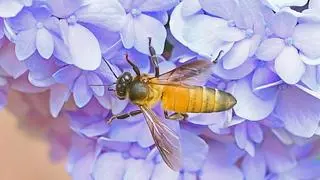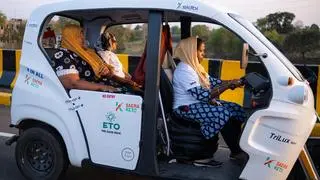We recently witnessed the fourth round of treaty talks among negotiators of the Intergovernmental Negotiating Committee on Plastic Pollution for 175 countries in Canada. Among other issues, the most vital area of discord was whether to limit plastic production, which is a major polluter, not easily biodegradable and uses fossil fuels for manufacture.
Closer home, in India, single use plastic (SUP) was banned two years ago, but the fact is that the ban is rarely enforced. SUP sadly continues to be in circulation in the form of plastic cutlery, plastic straws, plastic bags, food packaging, water bottles and a host of other disposable products made from the polymers of HDPE, LDPE, PET, PS, PP or EPS.
Exploring alternatives
However, one thing has happened, environmental concerns have led to exploring alternative materials, and R&D has started in the manufacture of biomaterial that serves the same use as plastic, has the same features of being light and low cost. These materials, or bioplastics, will be biodegradable in natural conditions or at least recyclable under industrial conditions.
Organisations into research or manufacture of such biomaterial in India are institutions and large companies with a bandwidth. Research at the Marine Biotechnology Division, National Institute of Ocean Technology (NIOT), Chennai, holds out hope that biopolymers from red seaweed incorporated with nanoparticles could substitute plastic in certain applications. Seaweed based bioplastic using chitin derived from prawn waste is also being developed.
Start-ups with a bent of mind to solve globally pressing climate change issues are too trying to make a difference. Ukhi India is an example. To find a sustainable solution, it has been experimenting with agricultural waste including rice husk, pine needles, nettle and hemp. From these materials, Ukhi will soon be producing biodegradable and compostable polymer granules at its facility in Faridabad. This is the result of several pilot projects that showed the possibility of developing a new biodegradable material that can be offered to plastic product manufacturers.
Sandeep Kumar Tyagi, Co-founder and COO, says that the single-use flexible products crafted from Ukhi’s granules will biodegrade into harmless CO2 and water within a span of 8-12 months upon exposure to soil, leaving no detrimental traces in the ecosystem.
Tyagi underlines why it is important to come up with solutions: “In 2021, India generated approximately 35 lakh tonnes of plastic waste, with half of it comprising single-use plastic products, totalling 17.5 lakh tonnes. Among these 17.5 lakh tonnes SUP products, 70 per cent consisted of flexible packaging material, which poses significant challenges for recycling due to its low economic value. Consequently, much of this plastic ends up polluting landfills, rivers, and marine ecosystems, eventually breaking down into harmful micro- plastics that pervade various environmental systems, including soil, water bodies.”
There are established players too trying to experiment and bring bioplastics into the mainstream. This time using sugarcane. Recently, Kolkata-headquartered sugar company Balrampur Chini Mills Ltd announced that it would be diversifying its business to add a Polylactic Acid (PLA is a bioplastic) manufacturing venture with an investment of ₹2,000 crore.
“The efficient usage of sugar as a raw material to produce PLA and bioplastics marks the onset of a significant shift from the current linear consumption manufacturing paradigm to the one led by circular and regenerative principles. Additionally, most of India’s current SUP consumption and its respective applications can be replaced by PLA and PLA compounds,” the company had said. In fact, it has inked agreements with three tech experts for the purpose— Sulzer AG, Alpine Engineering GmbH and Jacobs.
Recyclable cards
Payment cards manufacturers are also endeavouring to replace the plastic in their cards. Considering there are over 25 billion cards (credit, debit and prepaid) in circulation globally and each contributes approximately 5 grams of plastic, it is a much-needed change. Naresh Rao, VP & Sales Head Issuance Products, Giesecke & Devrient India Pvt Ltd, explains that they have shifted to rPVC cards in India, which means the plastic parts are made from 100 per cent recycled PVC and need 64 per cent less energy to manufacture compared to PVC.
Rao also says that G&D is making cards globally from ocean recovered plastic and from bio-based biodegradable PLA produced from corn-starch and sugarcane.
Though serious attempts are being made to find biomaterials that will degrade naturally to replace plastic, there is still a long way to go. Start-ups like Ukhi need to be incentivised, but there is no magic bullet that will bring an end to SUP pollution. The action of every individual counts.








Comments
Comments have to be in English, and in full sentences. They cannot be abusive or personal. Please abide by our community guidelines for posting your comments.
We have migrated to a new commenting platform. If you are already a registered user of TheHindu Businessline and logged in, you may continue to engage with our articles. If you do not have an account please register and login to post comments. Users can access their older comments by logging into their accounts on Vuukle.